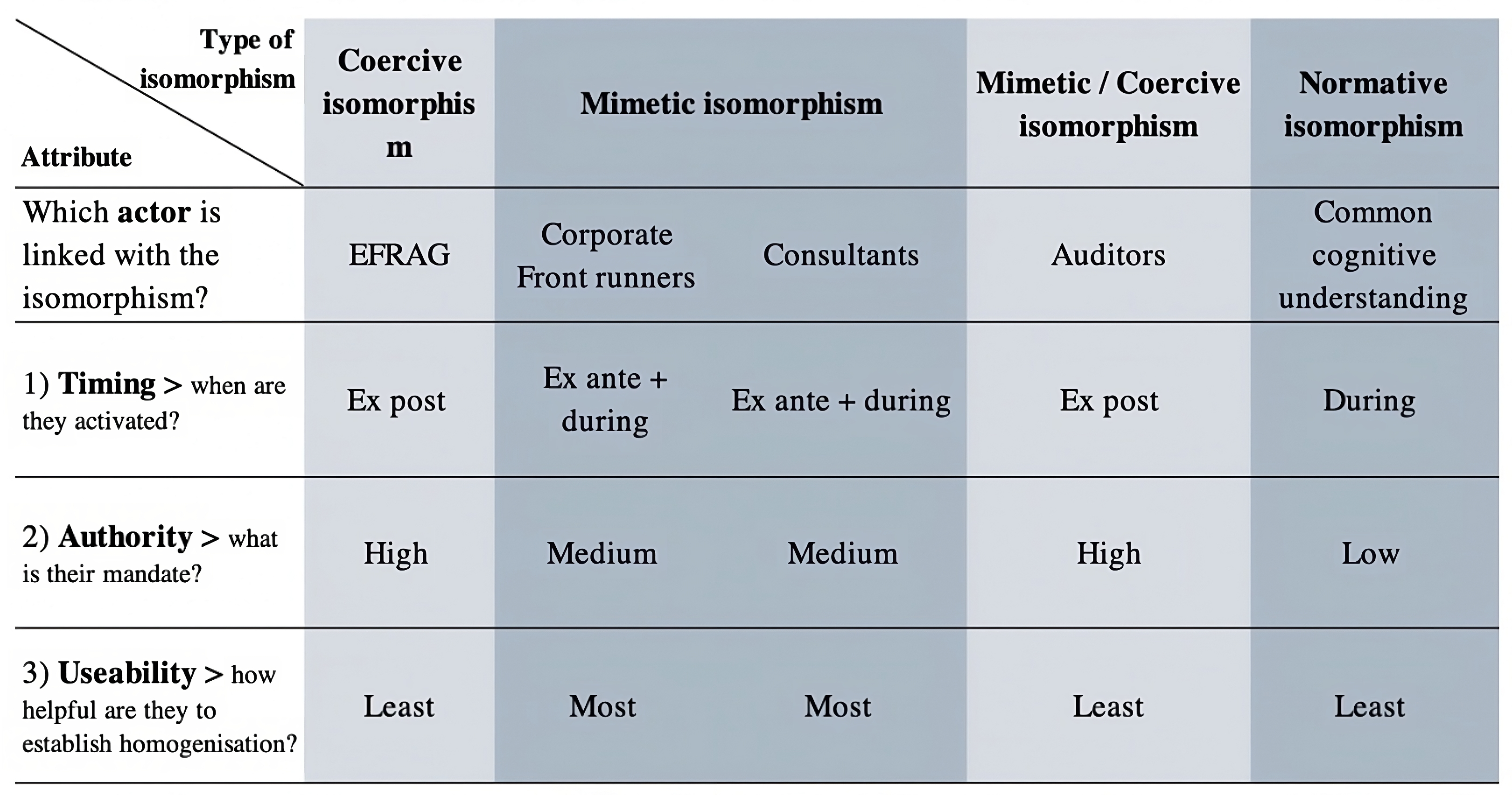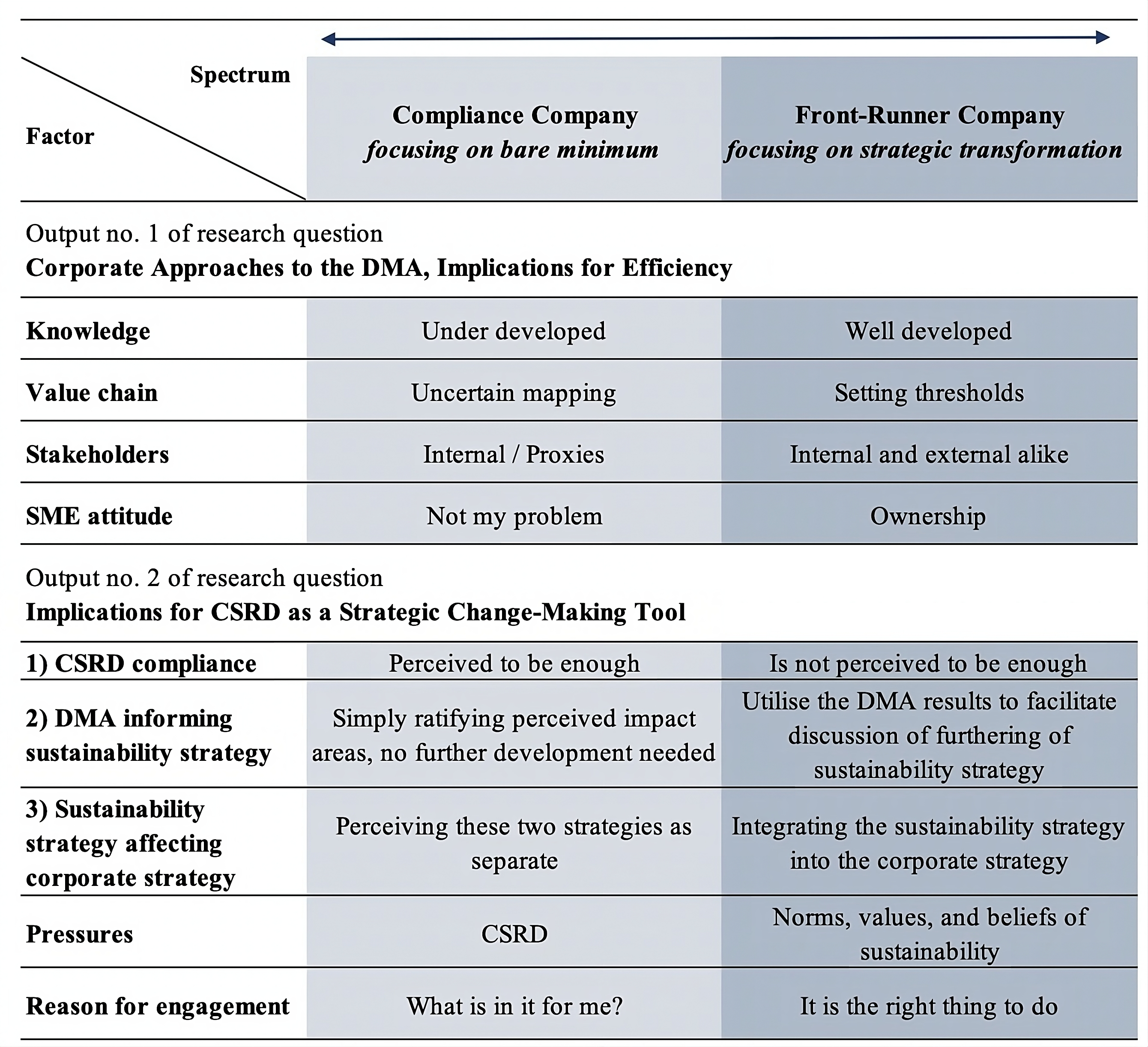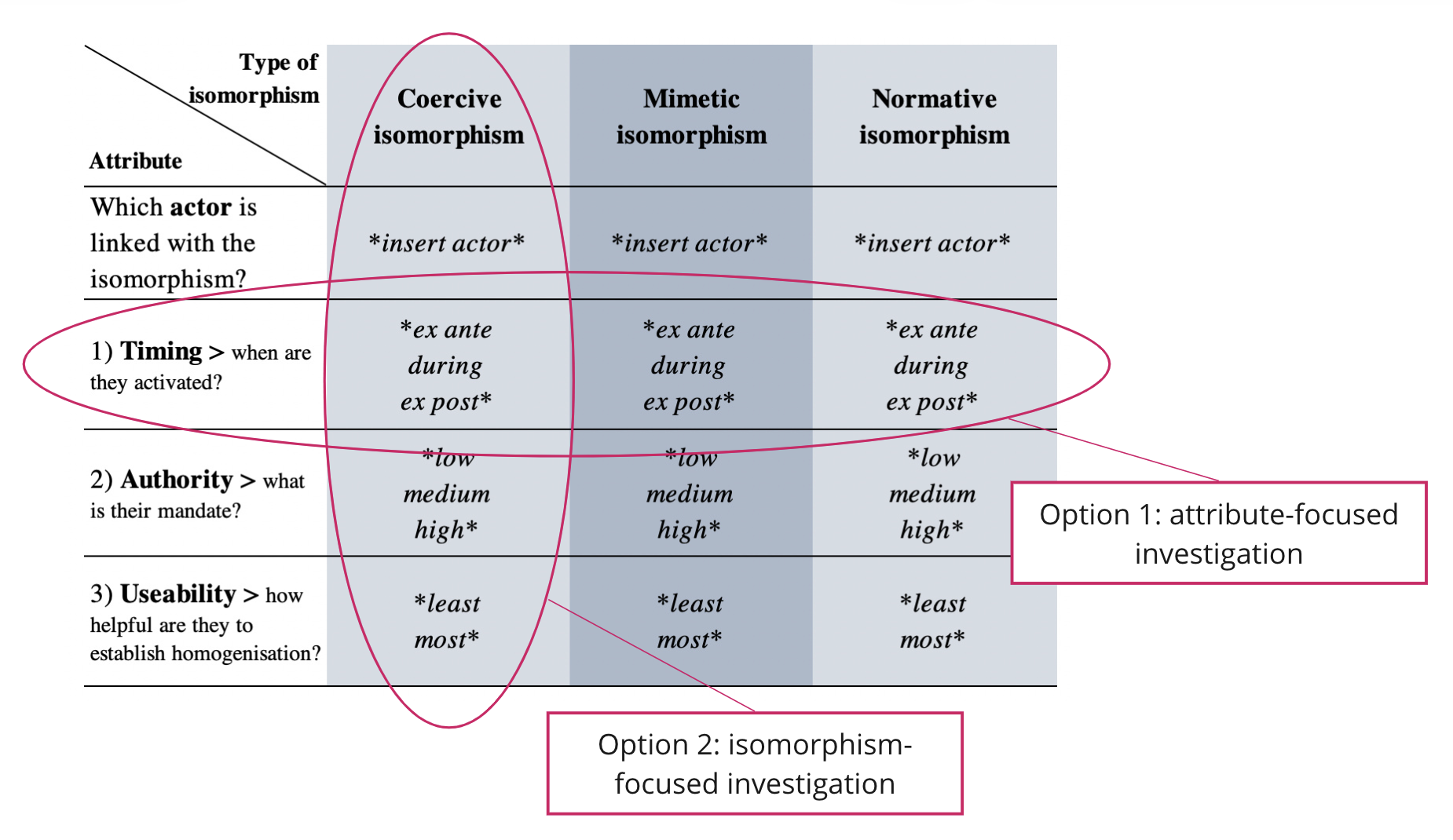By Sofie Nellemann, Anders Raabjerg Møller and Prof. Kristjan Jespersen
The Corporate Sustainability Reporting Directive (CSRD) is revolutionising corporate reporting traditions. Consequently, an integrated understanding of financial and societal matters needs to be developed. The concept of double materiality represents this integration, as material sustainability topics are depicted based on a company’s impacts on people and the planet, and vice versa, correlating risks and opportunities for a company’s value creation. A Double Materiality Analysis (DMA) has been incorporated as the foundational exercise for the CSRD, with potential strategic benefits for companies. Attempts have been made to provide a method for how companies should conduct the DMA by the European Financial Reporting Advisory Group. Yet, substantial uncertainty about the process and its implications prevails. This research contributes to reducing uncertainty in a relatively under-explored research field by posing the question: ‘How does the availability of resources and institutional frameworks influence corporate approaches to the DMA, and what are the implications for the CSRD as either a compliance mechanism or a driver of strategic transformation within corporations?’
The research builds upon 18 semi-structured interviews with DMA experts and practitioners. This solid data foundation enables exploration of the myriad of dilemmas within impacts on both process efficiency and strategic implications posed by DMA. The findings were analysed using neo-institutional and resource-based theories to determine which factors most effectively support the DMA.
Factors Influencing Efficiency and Strategic Use of DMA
The first output of the research outlines factors impacting the efficient undertaking of the DMA process. The development of human capital in the form of employee knowledge at both a general organisational level, general DMA level, and firm-specific level are important to ensure efficiency. Another influential factor was found to be the development of organisational capital i.e. clear tasks, roles, and responsibilities as well as support from top management. By ensuring that these capitals are well-developed and mature, companies will optimize the DMA process, and thus increase the potential for strategic transformation. Conversely, the research also found that isomorphic developments, in particular mimetic isomorphism, are less impactful for homogenisation and efficiency optimisation. This is due to best practices being underdeveloped for such a novel process as the DMA. Table 1 summarises types of isomorphisms.

Table 1: Summarising Isomorphisms (Authors’ creation)
The second output of the research linked companies’ perceptions of the DMA as well as the uncovering of material topics with the ability to utilise the entire DMA exercise for strategic transformation. Companies must incorporate three aspects upon completion of the DMA to achieve strategic transformation. These include being compliant with the CSRD and deliberately incorporating the DMA outcomes into the sustainability strategy as well as subsequently the corporate strategy. Furthermore, it was outlined that if companies perceive undertaking the CSRD and DMA as a way to gain moral legitimacy and adhere to the informal pressures of the sustainability regime, strategic incorporation is more likely to occur. Conversely, if companies focus only on instrumental value creation and formal legislative pressures rather than doing the right thing, the DMA will not move beyond mere compliance.
Practical Implications and Conclusion
The implications for practitioners are that the key to unlocking the DMA’s strategic transformation potential requires a vast amount of resources and deliberations. On the one hand, companies striving to be front runners in the sustainability space need both ambitions and resources to develop the necessary factors to strategically utilise the DMA. On the other hand, companies might be satisfied with the bare minimum compliance level, and will not be obliged to invest the same amount of resources. Yet, these compliance companies will also fail to unlock the extensive strategic potential of the DMA.

Table 2: The Compliance – Front-Runner Continuum (Authors’ creation)
In conclusion, this research contributes to both practical and theoretical fields by highlighting the resources and frameworks necessary for effective DMA implementation and its strategic potential. It also enhances theoretical understanding by expanding isomorphic analysis and adding norms to the VRIO (Value, Rarity, Imitability, and Organization) framework, emphasising the role of informal institutions in achieving sustained competitive advantage. The introduction of the CSRD and DMA points towards a broader corporate responsibility towards society, beyond mere business interests.

Table 3: The Two Approaches for Investigating Isomorphisms. (Authors’ creation)
About the Authors:
Sofie Nellemann is a recent graduate from Copenhagen Business School and the study programme MSc in Business, Language and Culture – Business and Development Studies. With a minor in ESG and throughout her degree, her research interests have developed in the intersection between strategy development and corporate sustainability. Sofie Nellemann is currently employed as a sustainability consultant at the consulting firm, Hansen & Ersbøll Agenda.
Anders Raabjerg Møller holds a completed Masters degree as MSc in Business Administration and Philosophy from the Copenhagen Business School. His research interests involve the incorporation and implementation of sustainable business practices in a contemporary corporate world. Combined with a minor in ESG he has honed his skills within problem-solving, analytical skills, and strategy in complex corporate context. Anders is employed as an ESG Data Specialist at Link Logistics A/S.
Prof. Kristjan Jespersen is an Associate Professor in Sustainable Innovation and Entrepreneurship at the Copenhagen Business School (CBS). Kristjan is an Associate Professor at the Copenhagen Business School (CBS). As a primary area of focus, he studies the growing development and management of Ecosystem Services in developing countries. Within the field, Kristjan focuses his attention on the institutional legitimacy of such initiatives and the overall compensation tools used to ensure compliance. He has a background in International Relations and Economics.